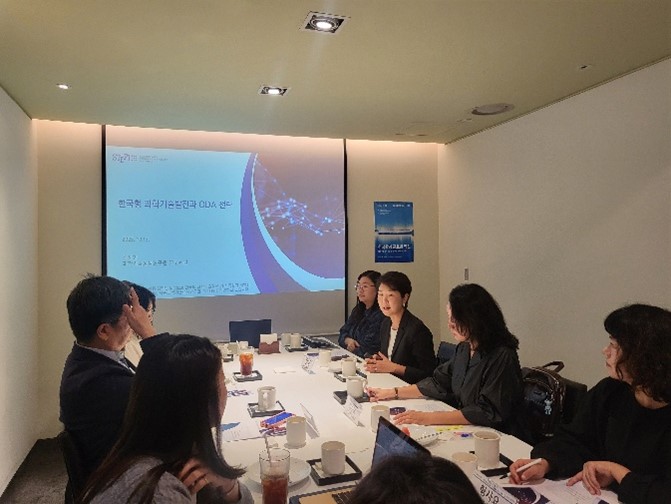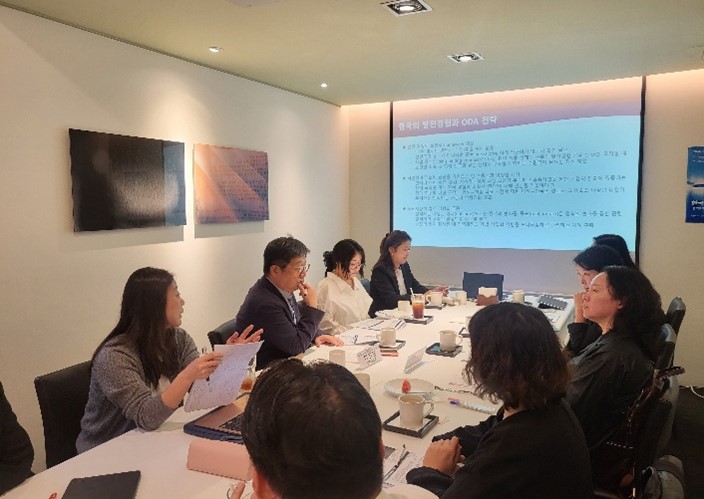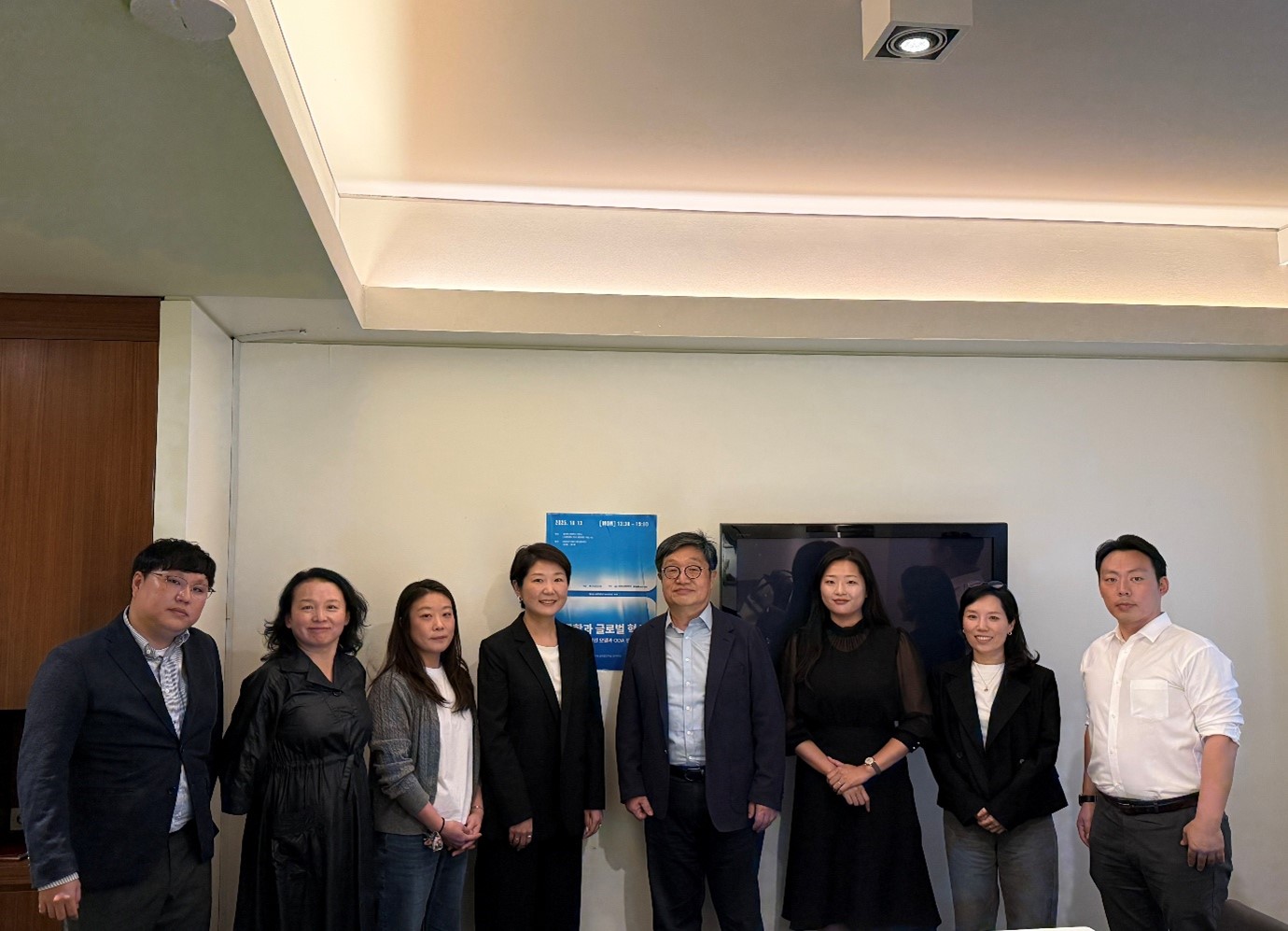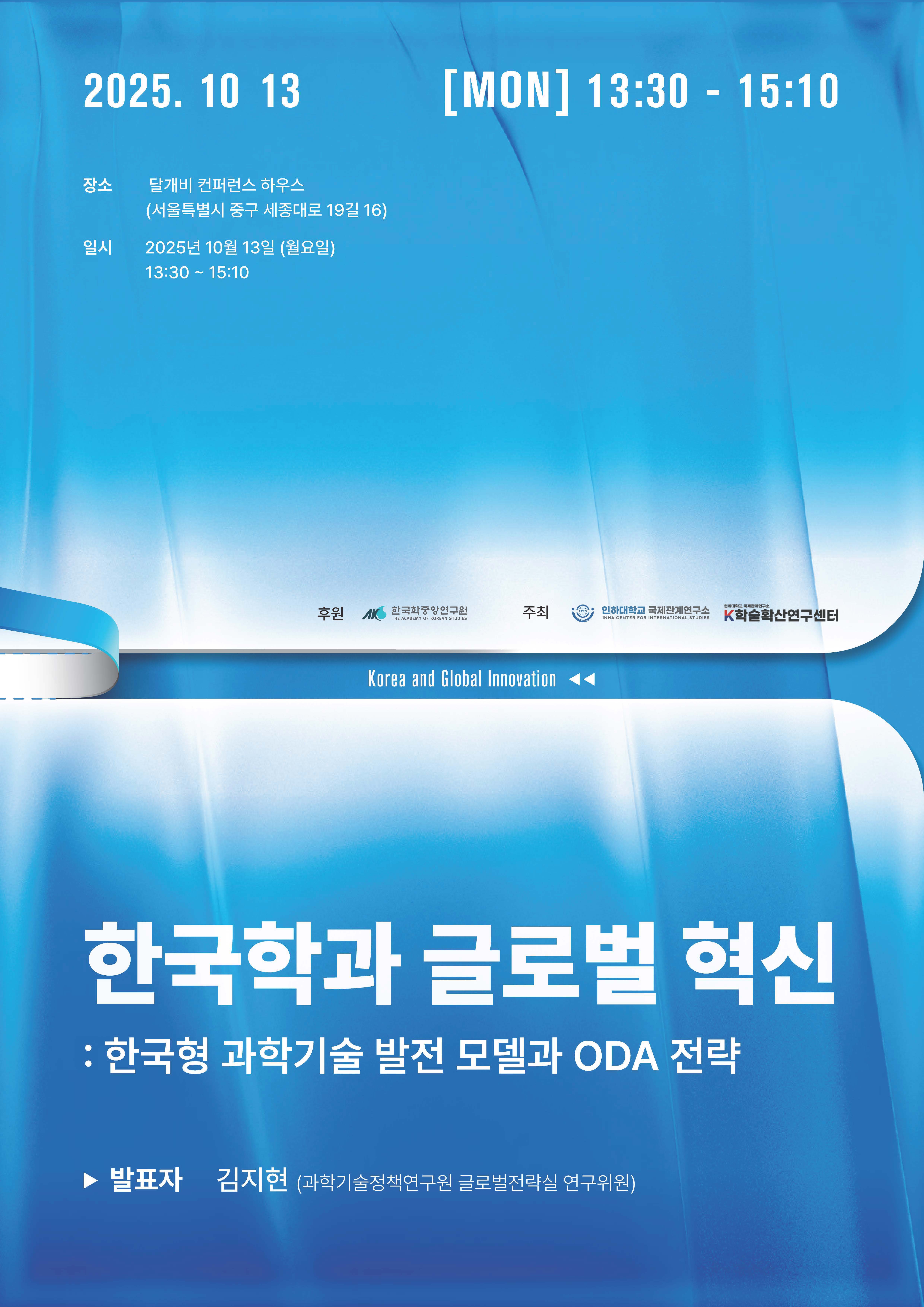Colloquium
Colloquium
2025-26 Inha CIS K-Adademic, 4th Colloquium
- Created 2025.10.15
- PresenterJi-Hyun Kim
- Views333
Korean Studies and Global Innovation: The Korean Model of Science and Technology Development and ODA Strategy
The K-Academic Diffusion Research Center of the Inha University Institute of International Relations held its 5th-year 4th Colloquium on Monday, October 13, at the Dalgaebi Conference House under the theme “Korean Studies and Global Innovation: The Korean Model of Science and Technology Development and ODA Strategy.” The colloquium is centered on a presentation by Dr. Ji-Hyun Kim, Research Fellow at the Science and Technology Policy Institute (STEPI).
Dr. Kim reinterpreted Korea’s experience of scientific and technological advancement as a state-led model of strategic innovation policy and proposed it as a convergent development framework linking international development cooperation (ODA) and the K-Academic Diffusion Project. She emphasized that the evolution of Korea’s science and technology policy was achieved through the accumulation of a long-term vision, institutional networks, and quantitative diagnostic indicators. She analyzed that such a structural approach could also be applied to the global expansion of Korean Studies. In particular, drawing on the cases of government-funded research institutes and the Daedeok Science Town, she underscored that the close linkage among policy, industry, and academia formed the foundation of Korea’s national innovation system.
She further noted that these experiences align with the K-Academic Diffusion Project’s goal of “international knowledge infrastructure sharing,” suggesting that it should serve not merely as a channel for content export but as a sustainable cooperation model that transfers institutional frameworks and human capacities together. Dr. Kim stressed that the Korean-style ODA should evolve beyond donor-centered short-term projects toward a long-term, indicator-based cooperation system—one that enables Korean Studies to take root autonomously within the academic and social contexts of different countries. Also, she proposed that scientific and technological innovation could be organically integrated with the future strategies of Korean Studies, including digital transformation, educational platform development, and the establishment of global networks. Ultimately, Dr. Kim concluded that by restructuring Korea’s development experience into an “integrated diffusion of policy, knowledge, and culture,” Korean Studies must secure sustainability across both academic and practical domains.
Following the presentation, a lively discussion ensued, led by Professor Suweon Kim (Hankuk University of Foreign Studies), Research Fellow Yoon-Hee Choi (Inha University Institute of International Relations), and Research Professor Min-A Yang (Institute of Foreign Studies, Chung-Ang University). The Q&A session focused on how the Inha University Institute of International Relations’ K-Academic Diffusion Project could be connected to or applied within Korea’s science and technology ODA strategies.
This colloquium was highly significant in that it organically linked Korea’s experience in science and technology development with both ODA strategy and the global diffusion of Korean Studies. Dr. Kim’s presentation provided profound insights by presenting the Korean development model as an integrated framework that combines academic analysis and policy practice, thereby offering a forward-looking vision for the international expansion of Korean Studies. In particular, her reinterpretation of Korea’s structural experience in science and technology policy as a sustainable model for the diffusion of Korean Studies opened new possibilities for interdisciplinary research. Overall, the event served as an outstanding forum for academic exchange, offering a clear direction for building the knowledge ecosystem that will support the global transformation of Korean Studies.
 |
 |





